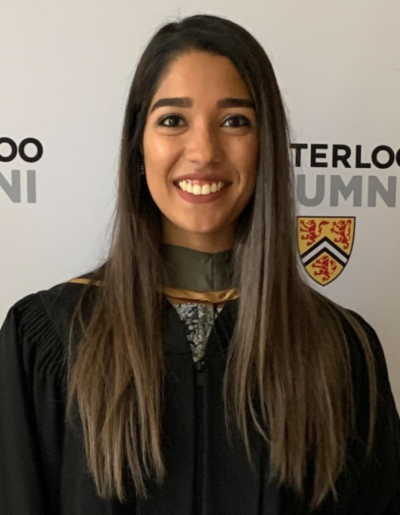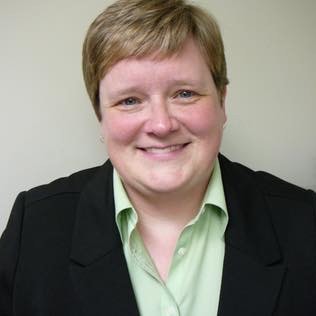
Did you know that approximately four in five healthcare workers around the world are women? The Equal Futures Network is shining a light on the work of women healthcare workers in Canada.
Dr. Naushin Hooda is a Critical Care Liaison Pharmacist at Cortellucci Vaughan Hospital and Scientist at EpidStrategies. She completed her Doctor of Pharmacy (PharmD) degree at the University of Waterloo and a post-PharmD residency in vaccine medical affairs at Sanofi Pasteur through the University of Toronto. As a pharmacotherapy specialist, she has worked with many interprofessional teams at urban and rural sites with a focus in oncology, critical care, and chronic disease management. A recognized leader in pharmacy, she is the recipient of several pharmacy awards including the Canadian Association of Pharmacy Students and Interns’ Guy Genest Passion for Pharmacy Award, Canadian Pharmacists’ Association Centennial Leadership Award, Ontario Pharmacists’ Association Student of Distinction Award, and the Canadian Association of Pharmacy in Oncology Student Award.
Naushin is passionate about improving access to care for marginalized patient populations, with a mission to solve rising issues in healthcare, primarily as a proponent of evidence-based medicine, inclusive policy development and advocate for advancing the profession of pharmacy.
How has the pandemic impacted your work? If you could get Canadians to understand one thing about your work during the pandemic, what would it be?
I graduated in late 2019 and was eager to begin my career as a pharmacist. I envisioned what it would be like to finally be doing what I spent most of my life preparing for: being the friendly face available and willing to help my community. Shortly after becoming licensed, the COVID-19 pandemic was declared and I found myself uncertain of what would happen next: should I be working? Should I stay home where it was safer? Would working put myself and my family at risk? Should I move to an area where there were fewer COVID-19 cases to minimize my risk? Despite the many questions I asked myself, it wasn’t a tough decision. I became a pharmacist to help people and so regardless of what was happening in the world around me, I knew I should stay true to my values. Shortly after, I began my current position as a critical care pharmacist amidst COVID-19: I was at the epicenter of the virus that shook the world. The pandemic impacted my work because it challenged me to take on a role that made me uncomfortable at first. However, reflecting on the year, I could not think of a better place for me to be.
In a year like no other, pharmacists and pharmacy staff across the country have been critical to the COVID-19 pandemic response. I hope that Canadians can understand and appreciate the role that pharmacists and pharmacy staff have had at the frontlines. We have continued to protect the drug supply against the several shortages faced across the nation. We have participated in COVID-19 screening, vaccine administrations and have continued to provide medical advice and triage patients to alleviate the surge occurring in emergency rooms. Overall, pharmacy personnel in a variety of practice settings (and there are many) have continued to provide high-quality care during a time when people and our health system needed it the most.
How has the pandemic impacted your personal life?
The pandemic has affected the way I interact with my family and friends. As someone who is very social and outgoing, I have had to be creative in the ways that I interacted with others. Social events became virtual. Family gatherings became Zoom meetings. My hobbies and methods of stress relief, including going to a gym, became limited. There have been good and bad days and no two days have been the same. The pandemic has forced me into a state of constant adaptation. However, I know I am not alone in this. We are all facing additional pressures coming from all directions. I suppose there is strength in knowing we are not alone.
Have you been vaccinated? If so, how did you feel when you found out that you were scheduled to get the vaccine? If not, how has the wait impacted your mental health?
As a frontline healthcare professional working in the intensive care unit, I am incredibly grateful to have been vaccinated. The word “relief” does not begin to describe what it meant for me professionally and personally. For too many people, this vaccine didn’t come soon enough. I feel safer and hopeful – two sentiments that I was not sure when I would feel again.
What is one piece of advice that you would give to pharmacy students during this time?
The pharmacy students who have graduated during the pandemic have demonstrated an unparalleled embodiment of unity and resilience. It has been an incredibly challenging time to have completed several years of schooling, to have to wait on the sidelines to officially become licensed pharmacists. Despite not being licensed, the next generation of pharmacy students have stepped in to alleviate many pressures during the pandemic, including being COVID-19 vaccinators.
These groups of pharmacy students and interns have my admiration. My advice for the next generation is to continue to unite and connect with one another. Share your experiences, frustrations and take action. I acknowledge it is much easier said than done, but you have demonstrated exactly how powerful and influential you can be. I eagerly await for you all to join us as future pharmacists.
It has been a long and hard year. What keeps you going? Are there any hopeful stories that you can share with us?
I feel incredibly supported by the pharmacy and interprofessional team at my hospital. In a year where loneliness has unfortunately become far too common, I am grateful to have a team by my side that acknowledges the collective efforts and strides made, even when the outcome is not always what we had hoped. The vaccination rollout in my community gives me hope for a brighter future. Having participated as a vaccinator in the clinic, I am reminded that for each individual that I vaccinate, most of whom belong to at-risk groups, I am protecting another individual, and more, from entering my ICU. In the years to come, I hope when I look back at this difficult time in history, I remember that despite being afraid that I, along with many healthcare professionals and frontline workers, leaned in instead of stepping back.
The Equal Futures Network acknowledges that Indigenous people are the traditional guardians of Turtle Island, on the land also known as Canada






